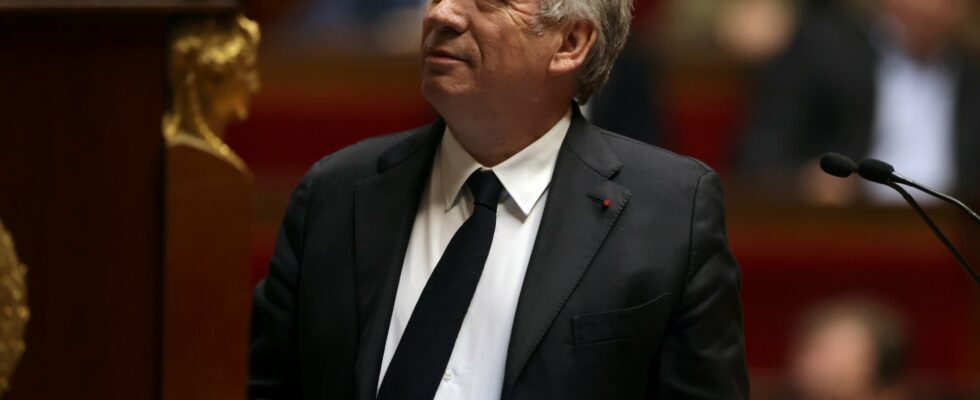The path is winding, perilous, lined with traps and banana peels. Above all, the outcome is uncertain. And yet, they will borrow it… This Friday, January 17 at 11 a.m., employee unions and employer representatives responded to the head of government’s call. Even the CGT which, until the last moment, kept its participation unclear. During his general policy speech on Tuesday January 14, François Bayrou called on the social partners to work together on the pension issue in order to find “paths of progress” for “a fairer reform”. Three months of discussions without taboo to find an agreement on a subject which hysterizes political debates and divides public opinion. As a final concession to the most doubtful unions, the Prime Minister clarified, the day after his grand oral presentation to the National Assembly, that even without general agreement, a new bill could be submitted to the vote of deputies. If François Bayrou chaired this first meeting, it is a specialist on the subject, politically neutral, who should lead the following ones.
“Obviously, our responsibility is enormous, but we know how to find compromises,” wants to believe Cyril Chabanier, the boss of the CFTC. “Faced with the political cacophony, François Bayrou had no other solution than to put the social partners at the heart of the debates,” adds Pierre Ferracci, a fine connoisseur of social relations and director of the Alpha group.
The Bayrou “conclave” is also a stone thrown into Emmanuel Macron’s garden. As if the tenant of Matignon wanted to resurrect today those that the president had tried to eliminate yesterday. At the start of his first five-year term, Emmanuel Macron had almost theorized the break with these intermediary bodies resistant to reform and pushing for immobility. Thus repeating the criticisms formulated by another head of state, Nicolas Sarkozy, who in 2012 also castigated these authorities which “create a screen between the people and the government”. Macron’s spin and other renunciations on the systemic reform of points-based retirement, although initially supported by the CFDT and Laurent Berger, had marked the divorce between the Élysée and the employee unions.
Can unions succeed where policies have failed?
“Today, the idea of decentering the debates to play the appeasement card is a good one,” agrees Bruno Mettling, former Orange HR director and president of the Topics firm. A clever way of seizing the pole extended by all the social partners – with the exception of the CGT – just before Christmas. In a letter addressed to Michel Barnier’s successor, the signatories expressed concern about the catastrophic consequences of political instability on the country’s economic activity and employment. A call for responsibility, in the face of an increasingly gloomy economic situation marked by an explosion of business failures and its attendant social plans. “No one realized the importance of this joint appeal. However, they were able to put their differences aside,” continues Bruno Mettling.
But agreeing on a new version of the pension reform is another matter than raising a cry of alarm, however justified it may be. Can unions succeed where policies have failed? At Medef, Patrick Martin keeps repeating that he has no red lines… Nor any taboos. “Leave it to us”, he said at the start of the year in our columns, recalling that the social partners, at the helm of the Agirc-Arrco supplementary pension scheme, have in the past been able to find delicate ways of passage. . Like in 2014 when they saved the system from near bankruptcy.
Social contributions, the sinews of war
Today, employers above all want to put the pharaonic project of financing social protection back on the table. With this almost existential question: how to continue to finance the pay-as-you-go system when the ratio between the number of contributors and beneficiaries has continued to fall, going from 4.2 in 1965 – the peak – to 1.3 today today, according to figures from the National Old Age Insurance Fund? For Medef, it is a question of finding new, more sustainable sources of financing, and taking advantage of them in the process to gain competitiveness and increase net salary. With a sleight of hand which would aim to reduce employer and employee social security contributions in exchange for an increase in VAT. A quick calculation shows that a two-point reduction in social security contributions could be financially compensated by a one-point increase in the standard VAT rate. It is difficult to imagine the most radical unions accepting such a shift, when the increase in contributions – or the elimination of certain reductions – is at the heart of their proposals. “If the CFDT accepted such a deal, it would obviously be in exchange for concessions on the retirement age, arduousness and women’s retirement,” breathes one of the negotiators.
The hand of politics
Will social democracy emerge from its “zombie” phase? “If the unions reach an agreement, even a shaky one, they will regain the place they have lost for a long time. They know that they have a gun to their head and some would be ready to make a few compromises”, wants to believe Pierre Ferracci. It remains to be seen what Parliament would then do with such a text. “To imagine that the deputies will vote for this agreement without trying to leave their mark through multiple amendments is totally illusory,” observes Antoine Foucher, the former chief of staff of Muriel Pénicaud and president of the Quintet cabinet.
However, if these amendments ultimately led to a widening of the deficits, the executive could always brandish article 40 of the Constitution which stipulates that the proposals formulated by the members of Parliament are not admissible when their adoption has the effect of a worsening of public office. “The unions are today actors exploited by politicians, they have succumbed to their desire to exist. The costume is too big for them”, tackles Antoine Foucher. All that for that?
.
